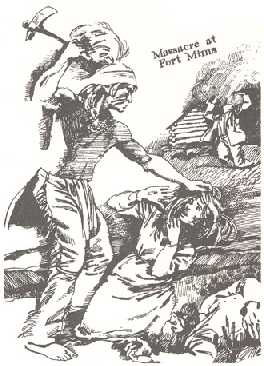The political implications of language
Home of the BraveFrom the beginning of this history the specialized vocabulary created by Europeans for "Indians" ensured our status as strange and primitive. Our political leaders might have been called kings or lords, instead they were chiefs. Indian religious leaders could have just as accurately been called bishop or minister, instead they were medicine men. Instead of soldier or fighter, warrior. And, perhaps, most significantly, tribe instead of nation. (For a more recent example of this, note how most press accounts often talk about ethnic troubles in Europe, but tribal conflicts in Southern Africa.) Mao Tse Tung and Beethoven are not translated from Chinese and French, language became and remains a tool by which we are made the "Other;" the Lakota name Tatonka Iotanka becomes Sitting Bull.
This is not to say that bishop was necessarily more accurate than medicine man, or that we have not made a term like warrior our own, or that translated Indian names aren't beautiful. It is to recognize that there are political implications to those decisions, and it was not one of multicultural understanding. The language exoticises and this exoticization has encompassed and permitted a range of historical responses from destruction to idealization.


1 comment:
Huh? This comment is mostly irrelevant to the subject of "the political implications of language."
Post a Comment